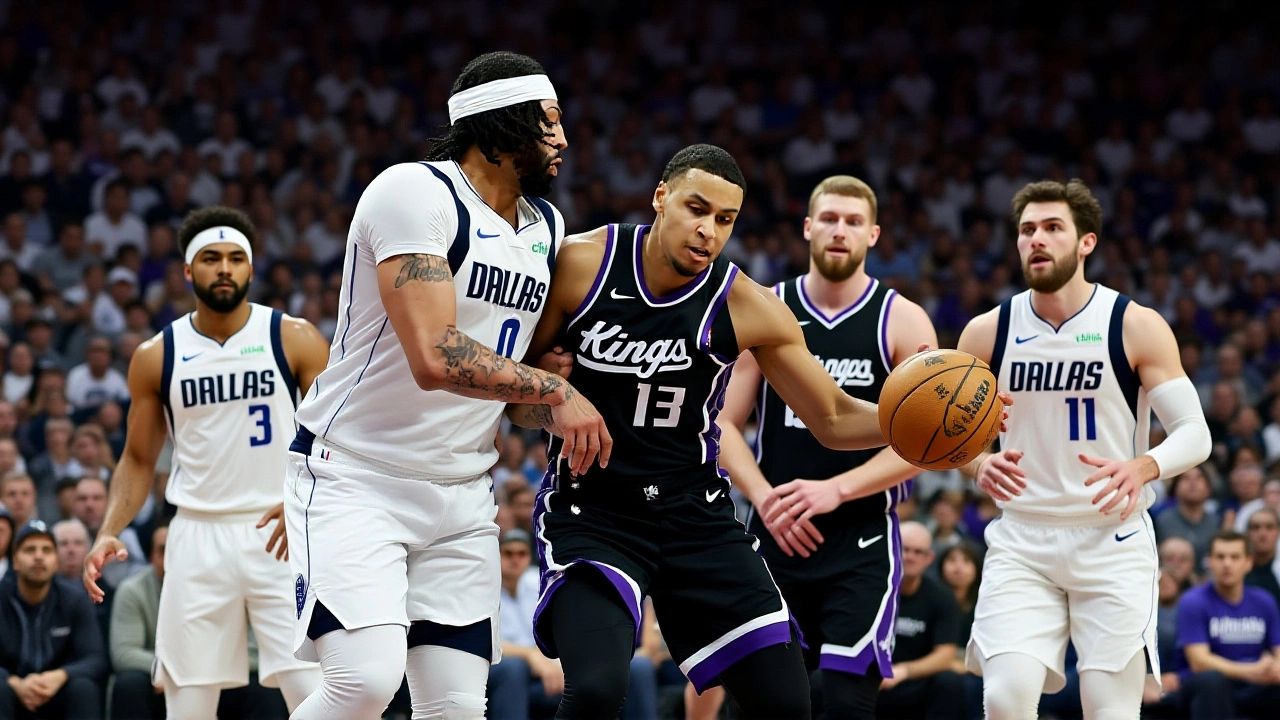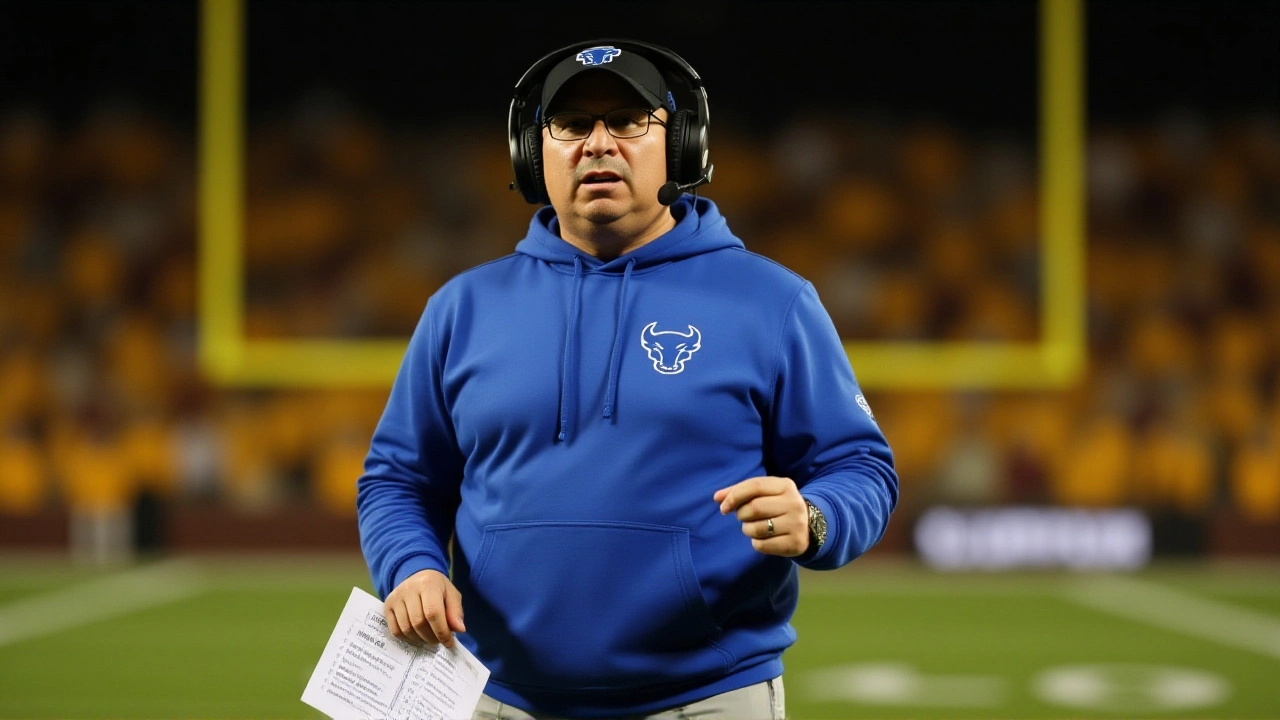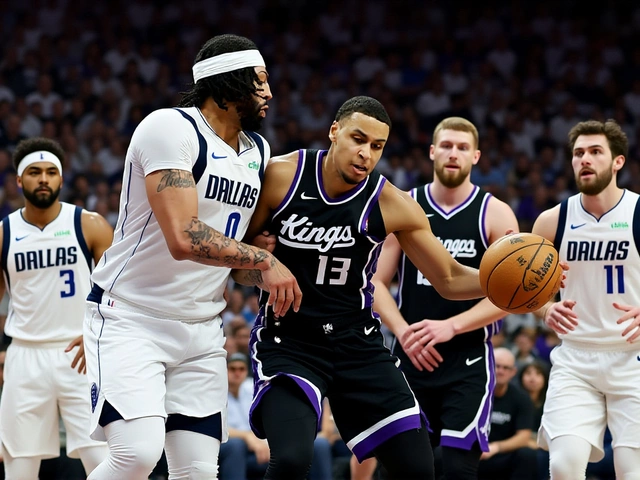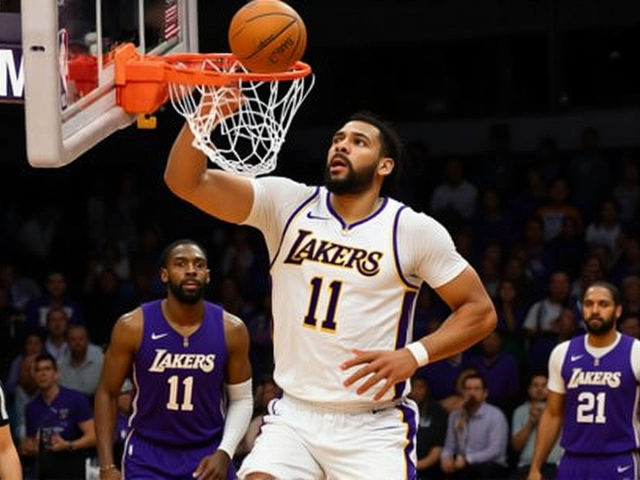Heat Crush Bulls 143-107 Behind Kel'el Ware's 20-14 Double-Double in NBA Cup Showdown

The Miami Heat didn’t just beat the Chicago Bulls — they erased them. On the NBA Cup group stage game United Center in Chicago on Friday night, Miami exploded for 143 points in a 36-point demolition that left fans stunned and analysts scrambling. The final buzzer sounded at 143-107, with Kel'el Ware leading the charge: 20 points, 14 rebounds, and a relentless presence in the paint that the Bulls simply couldn’t handle. This wasn’t just a win. It was a statement.
The Run That Broke Chicago
It started with promise for the Bulls. They opened the game with an 18-11 lead, looking sharp and confident. But then, everything changed. Over the next 15 minutes, the Heat went on a 53-21 scoring run — the kind that doesn’t just shift momentum, it obliterates it. By halftime, Miami led 82-57. The Bulls didn’t just lose the game; they lost their rhythm, their composure, and eventually, their discipline.
That’s when things got ugly. In the third quarter, Kevin Huerter, Chicago’s sharpshooting guard, was ejected after waving his hand in frustration following a foul call. The ball bounced off his fingertips — and straight into the back of referee Che Flores’s leg. The officials had no choice. Huerter’s ejection wasn’t just a technicality; it was the symbolic collapse of Chicago’s effort.
Heat’s Offensive Firepower: A New Standard
Miami’s 143 points? That’s historic. It’s their fourth game this season surpassing 140 — a total that matches their entire output from the previous seven seasons combined (2018-19 through 2024-25). They’re not just scoring. They’re redefining what an NBA offense can look like in 2025. Norman Powell added 19, Bam Adebayo chipped in 18, and guards Pelle Larsson and Davion Mitchell each dropped 16. No single player carried them. It was a symphony of motion, spacing, and relentless ball movement.
Meanwhile, the Bulls’ starting lineup — Isaac Okoro, Matas Buzelis, Nikola Vucevic, Ayo Dosunmu, and the mystery fifth starter (likely Jevon Carter, per ESPN’s depth chart) — looked out of sync. Dosunmu led Chicago with 23 points, and Josh Giddey nearly notched a triple-double with 19 points, 11 rebounds, and nine assists. But even his effort couldn’t mask the team’s structural flaws. They had no answer for Ware’s length, no defensive cohesion, and zero bench production beyond Jalen Smith’s 14 points.
Standings Shake-Up: Cup Implications
This result reshaped the NBA Cup Group C standings. Miami moved to 2-1, now just a half-game behind the Milwaukee Bucks (2-0) for the group lead. Chicago? They dropped to 1-2 and fourth place — a half-game behind the New York Knicks and a half-game ahead of Charlotte. With only four teams advancing from each group, the Bulls are now staring at elimination unless they win their next two.
The Heat’s next challenge? A showdown with Milwaukee on November 23, 2025 — a potential de facto semifinal in the group stage. For Chicago, it’s a must-win against the Knicks on November 24. No room for error. No margin for sloppiness.

Why This Matters Beyond the Box Score
This wasn’t just about points. It was about identity. The Heat, long known for gritty defense and playoff poise, are now a high-octane offensive force. They’ve added speed, spacing, and depth — and Ware, the 20-year-old center from Oregon, is becoming the X-factor. His 14 rebounds against Vucevic and Buzelis? That’s a generational shift in the paint.
For Chicago, it’s a wake-up call. They’re 8-6 on the season, but their performance in the Cup suggests they’re still searching for a true identity. Sabonis didn’t play, but even with him, this team lacks the defensive intensity and transition speed to compete with elite offenses. The 36-point deficit? Their worst of the season — and it came at home, in front of 20,917 fans at the United Center, a building that hasn’t seen this kind of collapse since the 2021 playoffs.
What’s Next?
The Heat’s offensive explosion won’t be sustainable every night — but it’s a sign they’ve unlocked something new. If they can maintain this pace, they’re not just Cup contenders. They’re title threats. For Chicago, the next 72 hours will define their season. Lose to the Knicks, and the Cup is over. Win, and they still have a shot — but they’ll need to fix everything: defense, bench production, and emotional control.
Frequently Asked Questions
How did Kel'el Ware’s performance impact the game?
Ware’s 20 points and 14 rebounds were the engine of Miami’s offense, especially in the paint where he outmuscled Nikola Vucevic and Matas Buzelis. His length disrupted Chicago’s interior passing, forced 7 blocked shots, and created second-chance opportunities on 8 offensive rebounds — directly contributing to Miami’s 143-point total, their highest since 2019.
Why was Kevin Huerter ejected, and what did it mean for Chicago?
Huerter was ejected after waving his hand in frustration following a foul call, causing the ball to strike referee Che Flores’ leg. While not violent, it was deemed unsportsmanlike conduct under NBA rules. His absence removed Chicago’s most reliable outside shooter, and the Bulls went 1-for-9 from three-point range in the final 18 minutes — a critical collapse in spacing and rhythm.
What does Miami’s 143-point game say about their season trajectory?
Miami’s 143 points marked their fourth game over 140 this season — matching their total from the previous seven seasons combined. With a 124.8-point average, they’re now the NBA’s top-scoring team. This isn’t luck; it’s a system built on pace, ball movement, and Ware’s rim-running. They’re no longer just a playoff team — they’re a potential Finals contender.
How does this loss affect Chicago’s playoff chances?
Chicago’s 36-point loss is their worst of the season and drops them to 1-2 in the NBA Cup, putting them in danger of missing the knockout rounds. Even with an 8-6 regular-season record, they’re now trailing the Knicks and Hornets in Cup tiebreakers. A loss to New York on November 24 could eliminate them from Cup contention entirely — and expose deeper roster issues.
Is this the new norm for the Miami Heat?
Maybe. Miami’s offense has evolved from isolation-heavy sets to a motion-based, five-out system that thrives with Ware’s rolling presence and Larsson’s cutting. Their 143-point game wasn’t an anomaly — it was the result of 18 months of system-building. If they stay healthy, expect 135+ points to become routine, not exception.
What’s the significance of the United Center’s capacity in this game?
The United Center’s 20,917-seat capacity was nearly full — but the crowd fell silent during Miami’s 53-21 run. That silence spoke louder than any chant. For a franchise that thrives on home-court energy, this loss felt personal. The Bulls haven’t lost by more than 25 points at home since 2021 — and this was their biggest blowout ever in the building’s 31-year history.

